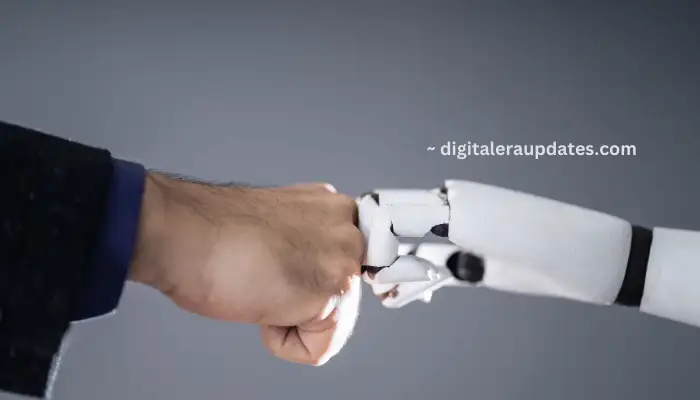Imagining a world where Artificial Intelligence (AI) evolves side-by-side with people is not conjecture about far-off science fiction futures, but instead a conversation nearly as real looming over our society, economic structures, and individual realities. The cohabitative relationship between man and machine serves only to confirm that artificial intelligence is a future beset by interaction combined with day-to-day life, an initiative we have likely already entered.
How We See AI Fitting into Human Life
The way we are seeing this unfold has been nothing in comparison to what a TRUE co-evolution with other intelligent development forms would be. Everything from virtual assistants that manage our schedules to sophisticated algorithms that suggest us what products or videos we should check out, artificial intelligence have entered in such a way and has started an augmentation of various decision-making around as well personal preferences also. In the decades ahead, those interactions will grow closer and more intricate as their AI becomes better at adjusting to how humans uniquely behave or know instead of setting limits.

Enhancing Cognitive Capacities
One of the big ways in which AI can affect human evolution would be to enhance our cognitive capabilities. Scientists are in the process of developing brain-computer interfaces (BCIs) which will connect human brains with a digital system, granting them not only vastly improved mental powers like perfect memory or flawless decision-making processes but also creating an immediate link between man and computer. This could unlock abilities in creativity, analysis, and problem-solving that currently seem unimaginable to both spreadsheets and human emotion.
Personalized AI Systems
As we have seen great strides in the advancement automation of many repetitive tasks, these will likely become highly personalized as well. The hope for the future is that AI systems will become your personalized agents, knowing who you are and what to do on your behalf. From healthcare and nutrition plans optimized on the basis of personal genetics and lifestyle to continuous learning/ career development systems tailored for every individual according to his/her pace of learning or preferred mode. This kind of personalization would create an unparalleled human-AI connection, in which AI systems could act as tools and companions that are more intertwined with the day-to-day lives of their users.
Ethical Implications and Challenges
However, this level of deep integration raises some significant ethical challenges. The loss of free will and potential for manipulation are some fears that ensue as AI slowly starts taking over our everyday decisions. It has the potential not only to recommend but even intermingle human thoughts and actions with personalized data making us think of privacy consent. With humanity increasingly relying on AI to perform cognitive tasks, humans may even redefine what constitutes essential human knowledge and in turn reconsider the nature of educational objectives or personal development plans.
Impact on Work and Social Systems
The conjoint evolution of AI with humans will also affect work and social systems. Robots and AI are already able to perform routinized or, as often is the case now even more complex tasks than humans can do; this means that we will have a lot of human workforce left doing work like managing other people (or machines), creating stuff only another fellow-human would actually use/want/feel in their lives with themselves. Here is a process that could result in dramatic shifts in the labor markets as well, potentially requiring reevaluation of economic systems towards ones geared to wellbeing and creative engagement versus productivity and efficiency.
Future Generations and New Skills
As humans are equipped to adapt to living alongside AI, it might lead future generations into developing alternative cognitive abilities than be king of the jungle manifesting advantages which have naturally evolved as its biological fate that benefits from an interlocuted relationship – replacing instincts honed when adapting to more complex problems and collaborative knowledge.
Conclusion
The promise of AI and human symbiosis is huge, but so are the pitfalls. It portends a world where we can augment the human intellect so that our knowledge is not just more extensive, but deeper and creates new vistas of knowledge based on computational processes. But it also requires us to ask hard questions and have honest conversations about the ethics of human technology as governed by AI technologies. The way that we navigate the trade-offs between these opportunities and challenges, in turn, will determine whether our future with AI is characterized by humanity at its best – or worst; it’s not only a matter of what kind of humans we want to be but also which human values and priorities as a society are preserved.
